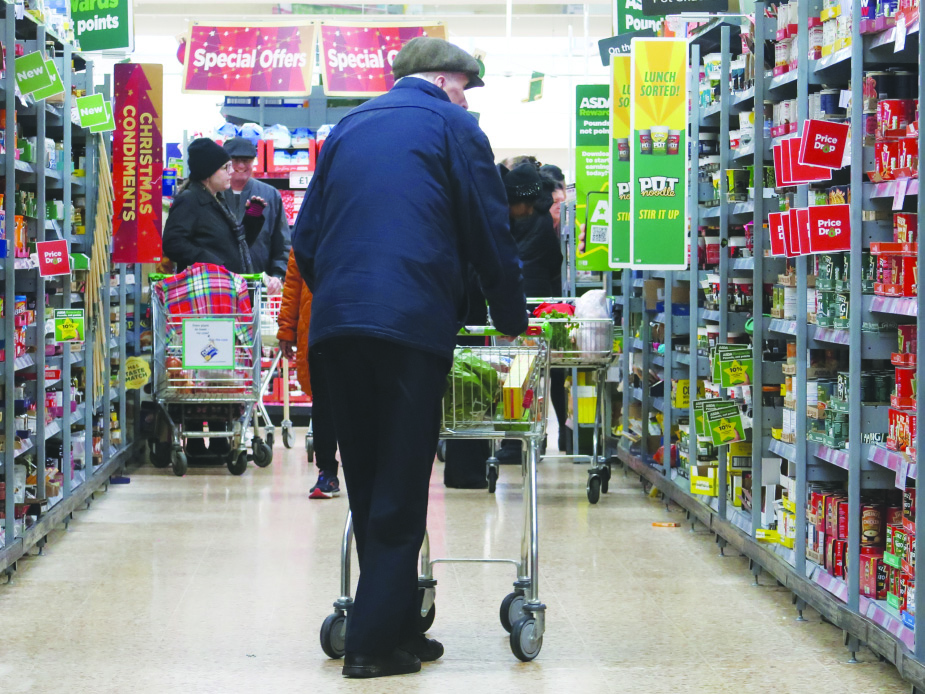UK's financial woes worsen during another turbulent year


Food prices rise
A survey from the ONS in November said, despite easing inflation, nearly four in 10 adults across the country were spending more than usual to get what they normally buy when food shopping, while more than four in 10 adults said they were buying less food when food shopping as a result.
A detailed analysis of the office's survey covering the period July 12 to Oct 1 showed that one in 20 adults had run out of food in the preceding two weeks and had been unable to afford to buy more. This rose to 8 percent among parents of dependent children, 13 percent among renters, and 21 percent among renters with dependent children.
Another poll conducted in early 2023 by YouGov, a global public opinion and data company based in the UK, painted a similar picture with 14 percent of all Britons saying they had skipped meals in the preceding 12 months because they could not afford to eat. And 24 percent of British parents with children said they had missed meals within the previous year so they could feed their children.
In December 2022, the Big Issue magazine, one of the UK's social businesses that works to help homeless people, asked two chefs to cook up a 20-pound Christmas dinner from supermarkets' cheapest ingredients. The chefs served a sausage stuffing traybake with lots of roasted carrots, parsnips, potatoes, and cabbage.
Last month, the magazine revisited the topic, and found the same recipe, using exactly the same ingredients from the same shops, now cost more than 24 pounds.
"Christmas can be a really difficult time. The financial stress of having to choose between heating and eating and making sure the kids have the presents they want can be overwhelming," chef Tom Kerridge told the magazine. "It's easy to see how the festive period can turn into quite a dark time for people."
The reasons why food prices have been rising faster than earnings are complex and include soaring energy prices and supply-chain disruption brought by the Russia-Ukraine conflict, as well as rising labor costs partly attributed to the UK's exit from the European Union, as well as the impact of climate change on harvests.
John Kinston, owner of Kinston EH & Sons, a dairy farm with 800 cows in England's Staffordshire county, told China Daily earlier in 2023 he had to take an extra 100,000 pounds from the bank to cover the farm's operating costs because of the rising price of food for his herd.
"Milk prices did increase, but not quick enough for the rising cost," said Kinston, who added that the price of fertilizer has gone from 280 pounds per ton to 750 pounds per ton.
The high price of fuel for agricultural machinery, the skyrocketed price of fertilizers and seeds, and the higher salaries needed to attract skilled workers from the EU were all eventually being passed on to consumers.























